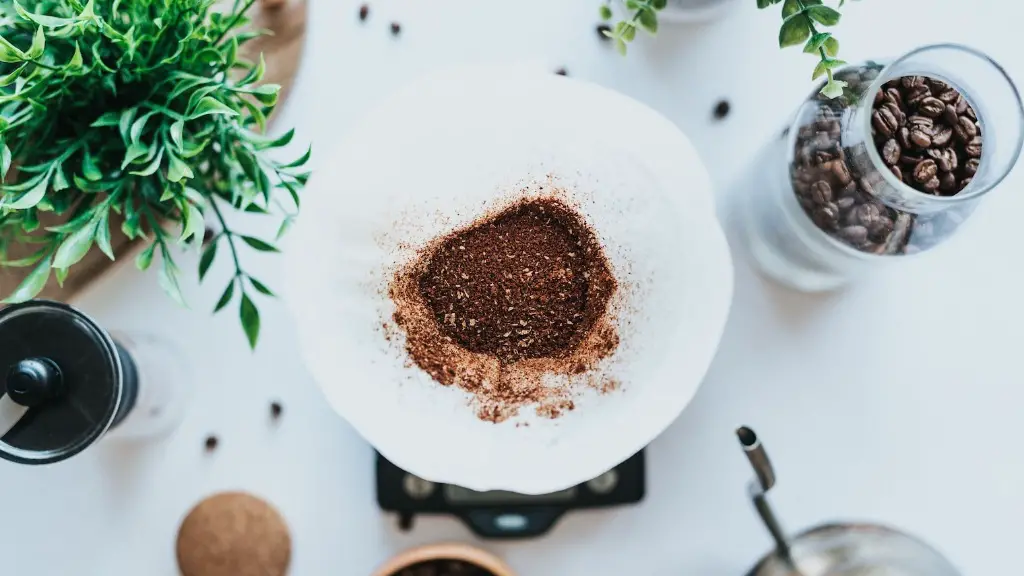Health Effects of Caffeine on Sleep
Drinking coffee late in the day can have a significant impact on your sleep and overall health. Coffee, especially the caffeinated kind, can provide an energy boost, but it can also disrupt your regular sleep routine. Caffeine works as an energizer in the body by overriding tiredness, making it difficult for people to naturally fall asleep.
Consuming too much caffeine can also mess with your body’s natural clock. For some individuals, this makes it even harder to fall asleep and can lead to a decrease in the quality of sleep. Caffeine has been proven to remain active in the body up to 10-12 hours after ingestion — meaning it keeps your neurons active and alert. This interferes with the sleep-wake cycle in your body, making it harder to enter the sleep cycle.
The amount of caffeine everyone’s body can handle is different. Some especially sensitive individuals might only be able to handle as little as one cup of coffee a day. Those who are more tolerant could drink a couple of cups while not experiencing any side effects. It is important to figure out your own tolerance and stay within it, to avoid the negative effects of caffeine.
However, a cup of coffee in the morning has no effect on regular sleeping hours at night. In fact, studies have shown that having a cup of coffee in the morning helps people wake up and reduce the amount of grogginess they feel. The optimal time of day to consume caffeine is in the morning, not later in the day.
Additionally, there are many other drinks and foods that contain caffeine, which can interfere with your sleep. Soda, yerba mate, some snack bars, chocolate, and tea also have caffeinated components, so it is important to track how much caffeine is being consumed throughout the day.
In conclusion, drinking coffee later in the evening can have a negative effect on falling asleep due to the active components from caffeine still being present in the body. Everyone’s caffeine tolerance is different, so it is important to track the amount of caffeine being consumed. If you are looking for an energy boost, try having a cup of coffee no later than 4-5 pm to ensure a good night’s sleep.
Lifestyle Habits To Assist In Falling Asleep
Habits and lifestyle choices also have an important role in our sleep quality. In order to get a good night’s rest one must adhere to a good sleep schedule. Following a regular sleep schedule ensures the best quality and duration of sleep. Going to sleep and waking up at regular times helps the body enter a natural sleep cycle.
Creating a relaxing bedtime routine can also help you wind down before bed. A relaxing pack indulging in activities such as reading, listening to music, or taking a hot bath help create a quiet cozy atmosphere prior to bedtime. This promotes the feeling of calmness, which assists in falling asleep naturally.
Moderate physical activity, like walking, can also have a positive effect on sleep quality. Exercising helps improve sleep quality in numerous ways. It assists in the relaxation process and releases hormones known to assist with the feeling of fatigue.
However, it is important to time your physical activity prior to bedtime, in the form of light exercises and stretching, to be sure the energy rush from exercise does not get in the way of falling asleep. Exercise can also help during the day to help maintain a healthy sleeping pattern.
In order to maintain a healthy sleeping pattern, it is important to stay away from screens especially digital ones. The blue light emitted by electronic devices is known to interfere with a person’s sleeping pattern. Staying away from romantic engagements and personal arguments prior to bed can also have a great effect on a person’s mental health and sleeping schedule.
Stress and Anxiety Levels Related To Sleep
Stress and anxiety can also contribute to lack of sleep and overall sleep quality. Unresolved stress often impairs physical and mental health, making it difficult to relax and reach a good night’s sleep. When it comes to the impact of chronic stress on sleep, cortisol is a chemical released due to stress that interrupts our natural sleep-wake cycle.
This process can create a negative feedback loop, making it difficult to fall asleep. According to research, stress, and anxiety disorders can lead to insomnia or other sleep disorders like sleep apnea or even night terrors.
As previously stated, it is important to create a regular sleeping schedule in order to promote better sleep. However, forming better coping strategies to stress and anxiety can also help improve sleep quality. Engaging in relaxation therapies to help minimize stress and anxiety levels can help in the fight for better sleep.
Mindful meditation and deep breathing exercise can be very effective methods of relaxation. Attending yoga sessions and getting a massage can also help reduce stress and anxiety levels. Additionally, talking to a mental health professional can provide more insight on how to manage stress and cope with existing conditions.
Nutrition Habits Related to Sleep
Besides physical activity and relaxation routines, the importance of nutrition should not be overlooked. Eating a balanced and healthy diet can have a positive effect on sleep quality. Eating dishes rich in carbohydrates like rice, potatoes, or oats is considered beneficial towards sleep quality.
Foods rich in magnesium also take an important part in getting good rest. Examples of such are dark green leafy vegetables like spinach and kale, or nuts and seeds (almonds, Brazil nuts, cashews, pumpkin seeds).
Cutting off caffeine intake two to four hours prior to bedtime is also recommended, as well as avoiding eating 15 minutes prior to sleep. Eating foods high in sugars and processed elements are also not advisable prior to bed. Scientific research has conclusively shown that eating a balanced meal even prior to bed can help reduce sleep latency.
Developing Healthy Sleep Patterns
Having consistent and sufficient sleep is essential in both physical and mental health. To make sure you get the necessary hours of rest, forming healthy habits when it comes to sleep is essential. Starting by writing your own sleeping schedule helps signal your body for when it should be moving into the sleep phase.
Getting the proper amount of light throughout the day also helps signal when it’s time to rest. Exposing yourself to natural or artificial light, or exercising outside during the days make it easier to transition into sleep at night. Setting up a dark, cool environment free of distractions also helps facilitate a comfortable rest.
Also, making sure to exclude caffeine intake late in the day helps avoid difficulty when it comes to snoozing. Coffee is a stimulant and its effects can last up to 12 hours. For some individuals, the effects come into play more quickly, so the timing of beverages containing caffeinated elements must be taken into account.
Creating Healthy Sleep Hygiene
Apart from diet and l





